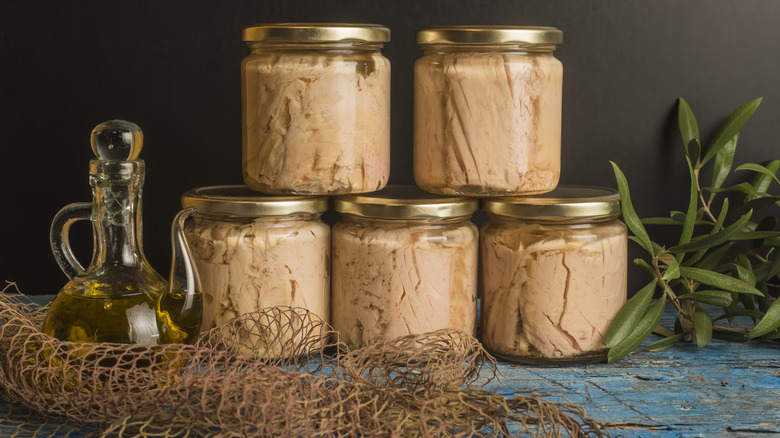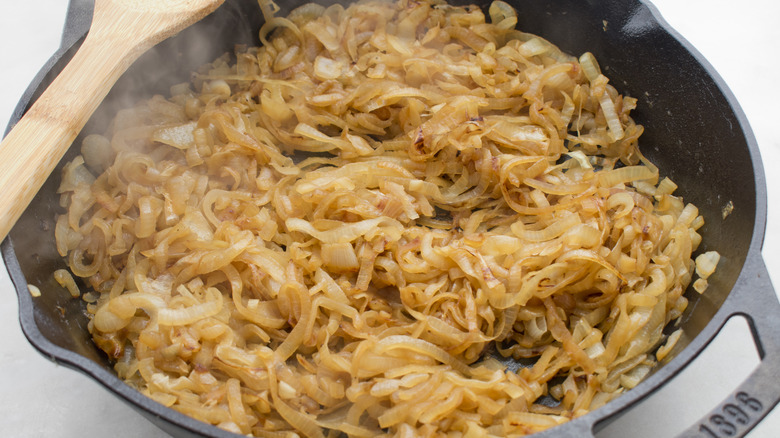Use Leftover Tuna Can Oil For Meatier Caramelized Onions
Caramelized onions add a little burst of sweet, yet savory umami flavor to just about any dish. Best of all, the technique is simple, only requiring a little time and patience. Of course, you can take it to the next level by adding an interesting ingredient or two but, for the most part, caramelizing onions is a waiting game.
While the technique may seem simple, a lot goes on scientifically when you caramelize onions. Both the Maillard reaction and caramelizing come into play. The interaction among sugars, amino acids, enzymes, and heat known as the Maillard reaction is responsible for the browning of meats and vegetables. Caramelization is all about the interaction of sugar, fat, and heat. While onions are relatively low in amino acids, they are high in sugar and therefore caramelize beautifully. The Maillard reaction and caramelizing both enhance umami tastes and form new flavor profiles while adding a lovely brown hue to the food.
Before we get into interesting ingredient hacks, it's crucial to go back to the basics. To caramelize onions, start with thinly sliced onions and some type of fat, then cook them low and slow. MasterClass suggests making slices that are ⅛ inch thick and consistent in size, as too thin can result in the onions quickly drying out. Using a lower heat, stirring regularly, and deglazing are all important, too. Beyond that, people may add additional ingredients to speed up the process or introduce new flavors.
Trade butter or olive oil for tuna oil
Examples of tricks used to speed up caramelized onions include adding water or even baking soda. Cooks also use different oils or fats to start the process. For example, some chefs like to use butter to caramelize, while others prefer olive oil. For a more umami-rich variation, add the oil from tuna packed in oil to your caramelizing onions instead. To try this for yourself, simply add a little tuna-infused oil from the can to your thinly-sliced onions, then cook over low heat. Remember to stir frequently to keep the onions from sticking to the pan as they release their sugars and ensure even cooking. How much oil you add depends on how intense you want the flavor to be, so keep in mind that there will be a slightly fishy taste in your finished product.
This fish-infused oil works best if you plan to use the onions in a seafood dish or another food that pairs well with seafood. For example, consider adding them to a seared tuna steak for next-level "meatiness." Other ideas for tuna-infused caramelized onions include adding them to ramen, pasta dishes, mushroom pizza, or with some grilled shrimp in a salad.

